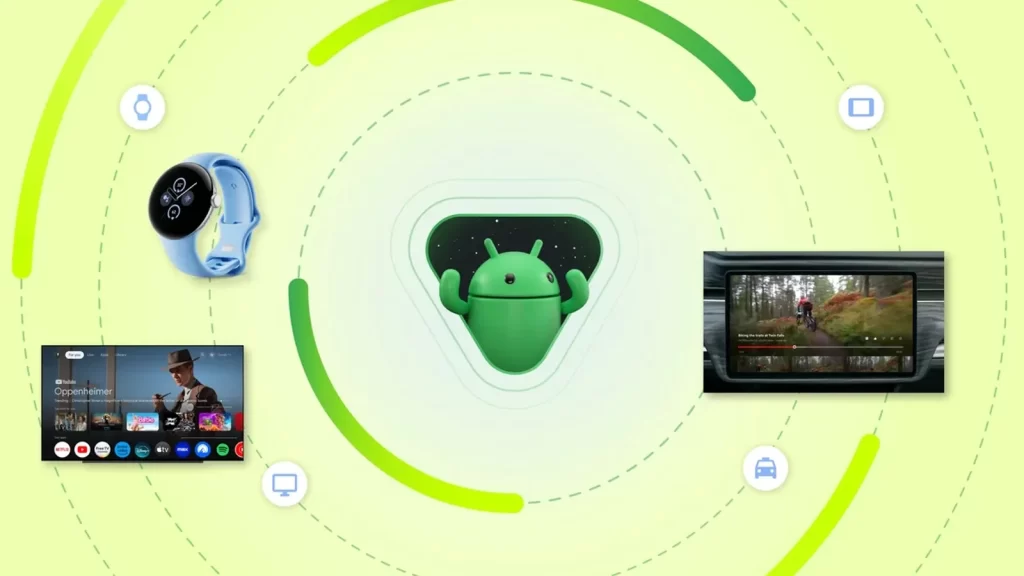Android 15 could bring big changes for mobile technology users who value customization and openness. The new version of this operating system promises big updates for consumers.
Android 15 features several updates specifically targeted at combatting theft. Factory reset protection stops thieves from wiping your phone to gain access to personal information stored therein.
Freedom
Android, unlike Apple’s iPhone system, is available on multiple devices from multiple manufacturers – making it an attractive option for developers and users alike. Furthermore, its simplicity is easily managed while free offerings add additional benefits.
Android powers more than 2.5 billion active phones, tablets, watches, TVs and cars worldwide – from GPS navigation devices to watches that text or communicate directly with each other and cars that talk back. Android provides solutions for everyday life: it makes navigation easy; texts come through on watches; even your car talks back!
Android was founded by Andy Rubin, Rich Miner and Nick Sears of Palo Alto California before Google purchased their start-up company in 2005. As one of the first open source mobile software applications with significant traction in the market, its acquisition signaled Google’s entry into mobile device industry.
Innovation
Android was introduced into the mobile device market in 2008, revolutionising it through its open-source nature and diversity-promoting hardware diversity and an ecosystem of apps and devices that compete for consumers’ attention. Furthermore, its AI-powered virtual helper, Google Assistant provides hands-free device control and interaction.
In late 2007, 34 technology manufacturers formed the Open Handset Alliance. This alliance consisted of hardware, software and telecom companies such as Google, Motorola, HTC, Sprint and Texas Instruments; as well as Japanese wireless carriers KDDI and NTT DoCoMo.
Beginning with Android 2.1 (Eclair), each successive version of Android delivered transformative improvements. Gingerbread reinvented tablet user experiences; Ice Cream Sandwich introduced a single design across smartphones and tablets; Jelly Bean fine-tuned and optimized system performance; Lollipop introduced Material Design while Marshmallow and Nougat further refined customization, security, multitasking features as well as multitasking support; Android 13 continued this path forward by offering tablet optimizations as well as app enhancements.
Security
Android is a mobile operating system featuring an expansive ecosystem of applications and devices. Additionally, its industry-leading security features ensure your device, data and services remain safe.
Android provides all user and system apps with limited access and actions on the device, and limits access to certain sensitive hardware components like camera, sensor and microphone.
In turn, this makes it harder for malicious attackers to gain access to your device or gain control. That doesn’t mean there aren’t vulnerabilities – but that doesn’t negate them being an issue either.
Last year, researchers discovered a flaw in DSP chips (Digital Signal Processors), which could allow hackers to take control of phones, steal personal information, and gain entry to sensitive systems. But Google quickly addressed these vulnerabilities with new versions of Android; that is one reason so many choose Android as their phone platform of choice.
Customization
Android OS provides developers with an extensive toolkit for building custom applications on any number of platforms, from phones and tablets to televisions and cars. Android also powers many POS machines; companies like Square and Peloton rely on Android when designing mobile POS systems of their own.
An API that supports various hardware components simplifies development. Ahead-of-time (AOT) compilation converts bytecode to native machine code during installation or upgrade, thus improving application performance. Starting in Android 5.0 Lollipop and later, the ART compiler replaced Dalvik virtual machine (DVM), reducing power consumption while speeding execution.
Consumer devices are notorious for being filled with unnecessary apps that take up storage space and slow down performance, but purpose-built Android devices can be configured to remove all unnecessary software for maximum speed and performance.




